Neuro-Complex (Neurodiversity) Resources
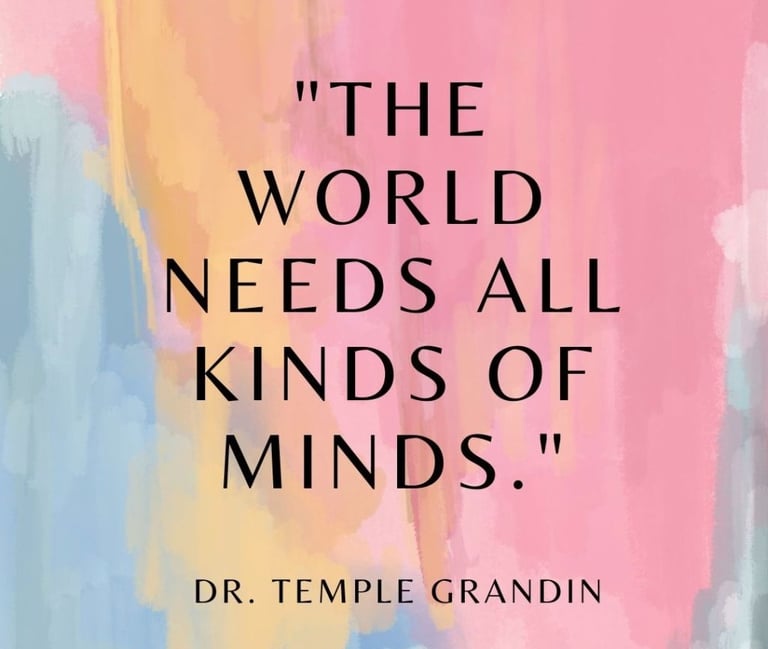

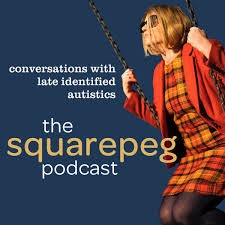



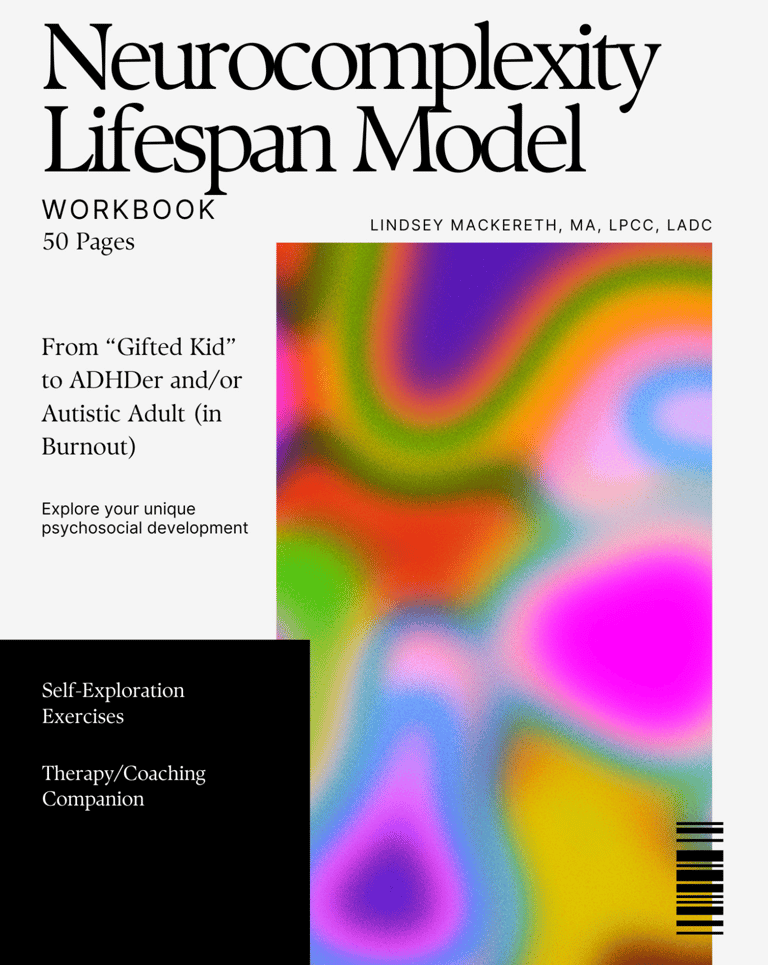



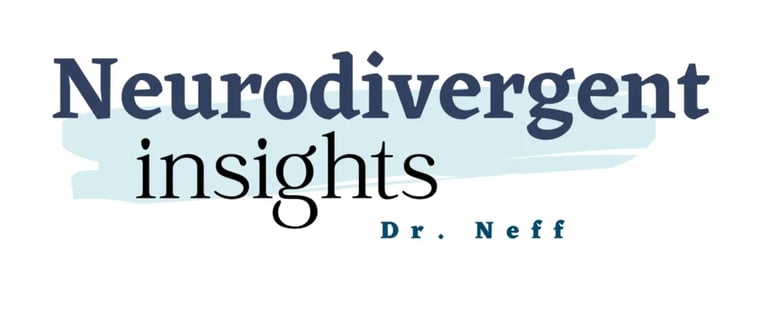

The New Neurodivergence Model- by Darren Glencross
From AuDHD Flourishing: 110 New Neurodivergence Model, Aug 30, 2025
Show notes on the "12 Satellites of Inner Orbit"
"Satellite 1 is sensory sensitivity. So some people might experience the world with heightened senses. Everyday sounds, textures or tastes might feel unusually intense. It could be either soothing or it could be really overwhelming. And it's not about being picky or dramatic. It's how your nervous system processes incoming information. You might be more sensitive to heat, noise, fabrics, brightness or background movement than others around you. And these reactions are often involuntary. And they can lead to discomfort, distress, shut down or withdrawal. Especially in chaotic or unpredictable environments.
Satellite 2, focus and attention flow. Your attention doesn't always behave the way people expect. When you're interested in something, you can focus so intensely that time disappears. But shifting that focus, especially towards things that don't engage you, can be incredibly difficult. You might struggle with starting tasks, switching between them, or keeping track of what you were doing. And this isn't about laziness or a lack of discipline. It's about how your brain regulates interest, energy, and mental effort. Sometimes you're in deep flow. Other times you feel foggy, restless, or completely stuck, even with simple tasks. And this fluctuation is common in ADHD and other forms of neurodivergence.
Satellite 3, emotional intensity. Some people feel emotions more strongly and more immediately than others. If this is you, your emotional responses can feel overwhelming, both in intensity and duration. A small comment or rejection might affect you for days. Positive emotions can be just as powerful, creating deep excitement or joy. This isn't about being too sensitive. It's about how your emotional system is wired. You experience feelings at full volume and they often show up quickly and physically. You may also carry emotional memories longer than others, especially if something felt meaningful or painful. This level of emotional depth is often misunderstood. Others may expect you to move on more quickly or may not realize how much something impacted you. It's not overreacting. It's real and it's exhausting when it's not understood.
Satellite 4, pattern recognition and meaning making. You naturally look for patterns in how things connect. That might show up through numbers, language, emotions, behaviors or events. You might spot cause and effect links or emotional shifts that others miss. This isn't just about logic. It's about instinct. Your brain processes information by building links, seeing structure beneath the surface and assigning meaning where others might see randomness. Some people may think you're overthinking, but in reality, your brain is wired to detect nuance, build frameworks or recognize emotional patterns, often without effort. This is one of your strengths, though it can feel overwhelming if too many connections happen at once.
Satellite 5, Rituals and Rhythms. Routines aren't just preferences.They can be essential for feeling grounded and in control. For many neurodivergent people, familiar steps or sequences bring a sense of stability that makes daily life more manageable. You might do things in a certain order, follow specific routines around food, hygiene or your workplace. Or find comfort in repeated actions or rituals. These aren't quirks. They're tools for navigating a world that often feels unpredictable. When those routines are disrupted, you may feel off balance, anxious or mentally scattered. This reaction can be intense, even if the change seems small to others.
Satellite 6, Support Disconnect. You may want support, but often the way it's offered doesn't work for you. If help is delivered in a rushed, dismissive or impersonal way, it can feel more draining than helpful. This disconnect isn't because you don't want support. It's because the support doesn't meet you in the right way. You may need space, clarity, trust or time. And when that's missing, it can lead to avoidance, frustration or even complete withdrawal. Many neurodivergent people have been let down by support systems. As a result, they may stop asking for help or feel ashamed for needing it in the first place.
Satellite 7, Tangent Mind. Some people don't think in straight lines. Instead, your thoughts move in bursts, jumping from one idea to the next, often looping or branching out in unexpected ways. This isn't a lack of focus. It's a different way of processing information. You may start with one idea and quickly end up somewhere else. And even if it seems unrelated to others, it still connects in your mind. While this kind of thinking can lead to creative breakthroughs and unique insights, it can also make communication harder. You might lose track of conversations, forget your original point, or get told you're rambling when you're actually thinking aloud.
Satellite 8, Identity and Sense of Self. If you're neurodivergent, your identity may not feel fixed or consistent. You might have spent years adapting to meet other people's expectations, adjusting how you speak, behave, or show emotion to fit in. Over time, this masking can make it hard to tell where the real you begins. This isn't about being fake, it's self-protection. You've learned what makes others comfortable, and you've tried to meet that even when it didn't come naturally. The cost of this is often emotional exhaustion, self-doubt, and a sense of disconnection. You may feel out of sync in social settings, unsure of your role in friendships, or unclear on what actually feels like you when no one is watching.
Satellite 9, body signal disconnect. Some people struggle to notice or interpret signals from their body. You might not realize you're hungry, thirsty, tired, or in pain until it's extreme. Sometimes the signals don't show up at all, or they arrive too late to act on comfortably. This disconnect can make it hard to take care of yourself in real time. You may go hours without eating only to suddenly crash, or you may feel physically unwell without knowing why. Emotional states and physical sensations can blur together, making it hard to separate what's happening. This isn't about being careless or irresponsible, it's about how your brain and body process internal signals. Learning to recognize and respond to these signals takes time, and often requires new tools or support.
Satellite 10, temporal drift. Your sense of time may not match the way most people experience it. You might lose track of how long things take, struggle to estimate how much time has passed, or find it difficult to break tasks into manageable steps. Sometimes, you're highly productive in a short burst of time. Other times, you might stare at a task for hours and get nowhere. You may forget appointments, misjudged deadlines, or put things off because they don't feel urgent yet, even if they're important. This isn't about laziness or bad planning. It's a different relationship with time. Many neurodivergent people experience time in extremes. Either everything is right now or it disappears into not now. Learning to manage this takes patience and the right tools.
Satellite 11, Voice and Expression Patterns. Communication doesn't always come easily or in expected ways. You might struggle to get words out, even when you know exactly what you want to say. You might speak quickly, stutter, go completely silent, or need time before you can respond. Some people use scripting, preparing what they'll say in advance. Or echolalia, repeating familiar phrases or quotes to express themselves. These aren't delays or mistakes, but valid communication tools. You may also experience a mismatch between how you feel and how you sound. Your tone, facial expression, or body language might not reflect your true emotion, which can lead to misunderstanding. This isn't a communication deficit, it's a difference in how your brain and body access and express language.
Satellite 12, Moral Compass and Justice Sensitivity. You have a strong sense of right and wrong, and when something feels unjust, dishonest, or harmful, it affects you deeply. You may react strongly to things others seem to ignore or brush off. This isn't because you're dramatic or overly sensitive, it's because your internal values are intense and clear. You often notice subtle violations of trust or fairness. You might struggle when people lie, break rules, manipulate or act hypocritically. These situations can trigger frustration, anger, or even emotional shutdown. You may also hold yourself to very high moral standards, sometimes to your own detriment. It can feel empowering when your values guide you, but isolating when others don't seem to care in the same way. This is a form of emotional intelligence, but one that can feel exhausting in a world that doesn't always match your level of care.
So that's the 12 satellites."
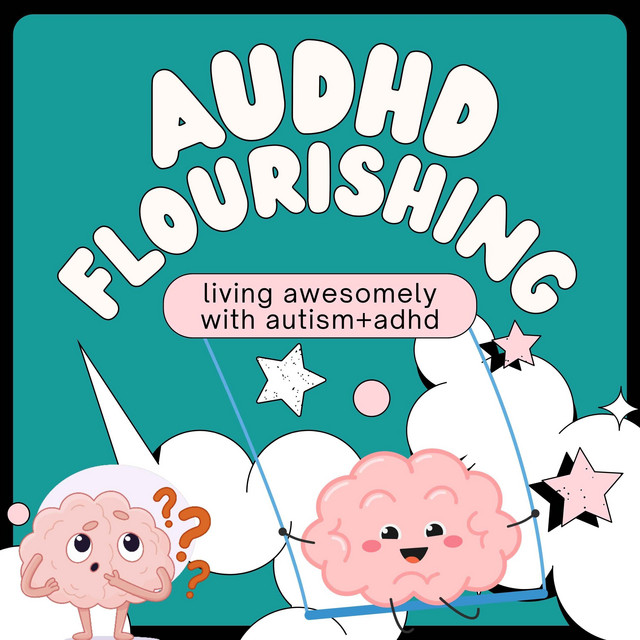

Local ADHD Groups
Adults with ADHD Skills Group (Tigard, Portland)
https://drsandersonandassociates.com/adhd-group-for-adults
Thriving with ADHD Group for Adults (online / Portland)
https://thrivingwest.com/group/adhd-group-for-adults/
DBT Skills for Adult ADHD (Portland)
https://pulsewellness.coop/trainings/#coaching
https://www.psychologytoday.com/us/groups/dbt-skills-for-adults-wadhd/255301
Adult ADHD Group (Portland)
Deep Space Clinic
https://deepspacepdx.com/groups
https://www.psychologytoday.com/us/groups/adult-adhd-portland-or/221472
Meet-up Group - Meet Your Tribe Adults with ADHD PDX
https://www.meetup.com/Meet-Your-Tribe-Adults-with-ADHD-PDX/
NAMI ADD/ADHD Online Support Group (Online - Washington County residents)
https://namior.org/support-groups/
Call NAMI Washington County at 503-356-6835
Local ADHD Assessment Sites
Vista Psych, https://vistapsych.com/programs/adhd-eval/
Life stance https://lifestance.com/location/beaverton-or-1500/
NW ADHD https://nw-adhd.com/evaluation/
